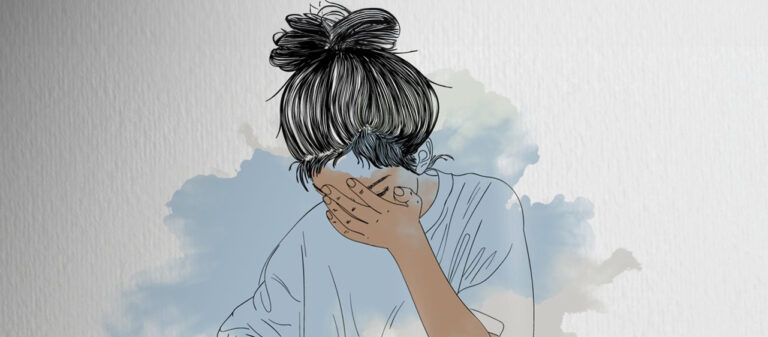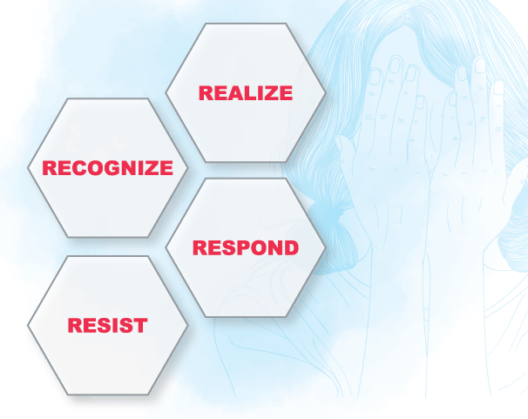Helping Youth Respond to Trauma & Toxic Stress

Trauma and toxic stress are complicated and look different in everyone.
Sometimes we might not even realize what we’re seeing in a young person is related to trauma. Here is some guidance that will help you recognize it and shape how you respond.
How To Define
How To Recognize
How To Respond
HOW CAN WE HELP?
As a caring adult, you too can help support young people impacted by trauma or toxic stress.
As experts in positive youth development, we at Girls Inc. want to help you develop an understanding of trauma and toxic stress and build skills to support the young people in your lives who may be experiencing stressors brought on by COVID-19, the burdens of racism, or any other ongoing difficulty or adversity.
Use the Tip Sheet to learn more
The 4 R's
KEY ELEMENTS
Realize, Recognize, Respond, and Resist.
A trauma-informed approach includes four essential elements. Learn more about them here.

Six Principles of Using a Trauma-Informed Approach with Young People
Explore the considerations and practical actions that you can take with the young people in your life who are navigating trauma and toxic stress.
Download Six Principles
WHERE CAN I LEARN MORE
Now, more than ever before, is the time to build an understanding of trauma and toxic stress and explore ways to offer support to young people.
Resources
Girls Inc. + Mental Health: Find resources and information around supporting a girl’s mental health and well being.
Jed Foundation Mental Health Resource Center: Essential information about common emotional health issues which focuses on peer support, screenings and crisis response.
Mental Health America: A comprehensive website for relevant and culturally appropriate mental wellness and mental health care for all.
National Child Traumatic Stress Network Families and Caregivers Resources Catalog: A collection of resources for families, caregivers, or anyone with a young person in their life who has experienced trauma.
Parenting with PACES: Parent education, training and support resources on positive and adverse childhood experiences) from PACES Connection for parents and caregivers of youth.
Racial Trauma is Real: A resource from the Institute for the Study and Promotion of Race and Culture with specific resources for recovery and healing from ongoing racial trauma.
TED MED Talk with Dr. Nadine Burke Harris: Pediatrician and California Surgeon General Dr. Nadine Burke Harris explores the impact of adversity on the developing brains of youth and across the life-span.
Crisis Support
Review warning signs and connect with support for a young person dealing with a mental health crisis through the Suicide Prevention Lifeline / 1 (800) 273- TALK | Support is available 24/7.
In some cases, learning of prior abuse necessitates reporting. Find more information from confidential crisis counselors from Childhelp.org / 1 (800) 4-A Child | Support is available 24/7.
Remember, trauma may manifest in children and teens in different ways. If you believe a young person in your life needs additional support, contact a mental health care professional or the appropriate authorities.
